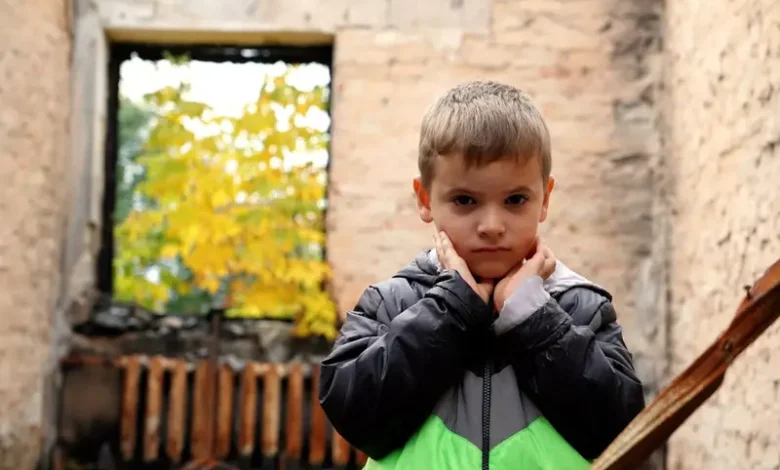What to do and where to turn if you become aware of war crimes against a child

As a result of the war, children on the territory of Ukraine systematically suffer violations of their rights provided for by international humanitarian law. Among the many consequences of war, it is crimes against children that require special focus, fixation and proper investigation. Bringing the culprits to justice is only possible if the facts are documented and presented in a legally relevant manner.
Legal qualification of actions: what constitutes a war crime against a child
Wounding, loss of parents, isolation, restriction of access to medical care, blocking of evacuation, deprivation of liberty or obstruction of humanitarian supplies – these actions qualify as war crimes under international humanitarian law. Bringing the guilty to justice is possible only if the facts are documented, and the collection of testimonies from eyewitnesses is a key stage of this process.
Juvenile prosecutors of Ukraine call for recording the facts of war crimes if a child finds himself in one of the following situations:
- was injured or lost a loved one as a result of the use of weapons by the Russian military;
- suffered physical, psychological or sexual violence;
- was deprived of access to medical care, despite the need for treatment;
- left homeless as a result of a direct hit by a projectile or occupation of the residence by occupying forces;
- could not leave the war zone for a long time due to blocking of the evacuation corridor;
- held against the will by the occupiers;
- did not receive food, medicine, and basic necessities due to the blocking of humanitarian shipments.
In all these cases, the child has the right to be recognized as a victim in criminal proceedings. This provides for the possibility of a subsequent application for compensation for the damage caused by the crime, and also guarantees the right to be protected in the legal field.
Evidence collection mechanisms: where to turn
Legally significant information can be transferred to the prosecutor’s office of Ukraine directly or through online platforms. It is recommended to use the official resource:
warcrimes.gov.ua — the website of the Prosecutor General’s Office, created to record crimes committed during the armed aggression of the Russian Federation.
In addition, the following telephone lines are open:
+38 096 100 44 38
+38 068 323 58 56
(every day from 08:00 to 20:00)
As part of the appeal, you can get instructions on giving evidence to the juvenile prosecutor, including an explanation of the procedures, the evidence collection form, a security assessment and maintaining confidentiality.
What should be documented?
In order to initiate criminal proceedings, it is important not only to report the fact of the violation itself, but also the specifics: when exactly it happened, in which locality, under what circumstances. If there is photo or video recording, statements of other eyewitnesses, medical certificates, death certificates, these materials must be attached to the application. Even when the perpetrator is not identified, the report has value as an element of the evidence base.
It is especially important to record data on:
– the exact date of the event;
– persons who were nearby and can confirm the circumstances;
– signs of existing or possible violence;
– destroyed objects (housing, medical institutions, schools);
– presence or absence of access to humanitarian aid.
Security and legal protection of the person giving evidence
All persons who provide information about crimes are protected by the current legislation. Reporting war crimes poses no risk to the applicant. Prosecutors are obliged to preserve the confidentiality of the identity of the witness, not to disclose personal data and to provide legal protection if necessary. All communications take place in the legal field provided for the cooperation of citizens with pre-trial investigation bodies.
Data provided by eyewitnesses is not secondary. They are the basis for opening cases, entering information into the Unified Register of Pretrial Investigations, sending indictments to court, and later to international tribunals. Those persons who silently passed by the fact of violence against a child do not contribute to the restoration of justice. Whistleblowers also provide a tool for prosecuting those who have committed war crimes.
Actions against a child in wartime are a crime that does not have a statute of limitations. They fall under the jurisdiction of both Ukrainian and international criminal law. In order to realize the possibility of punishing the guilty, it is necessary to record the facts. Every case must be documented, but without witnesses there are no cases, and without cases there are no convictions. Therefore, those who have witnessed a violation of a child’s rights have a clear legal and ethical obligation to report it to the competent authorities.





